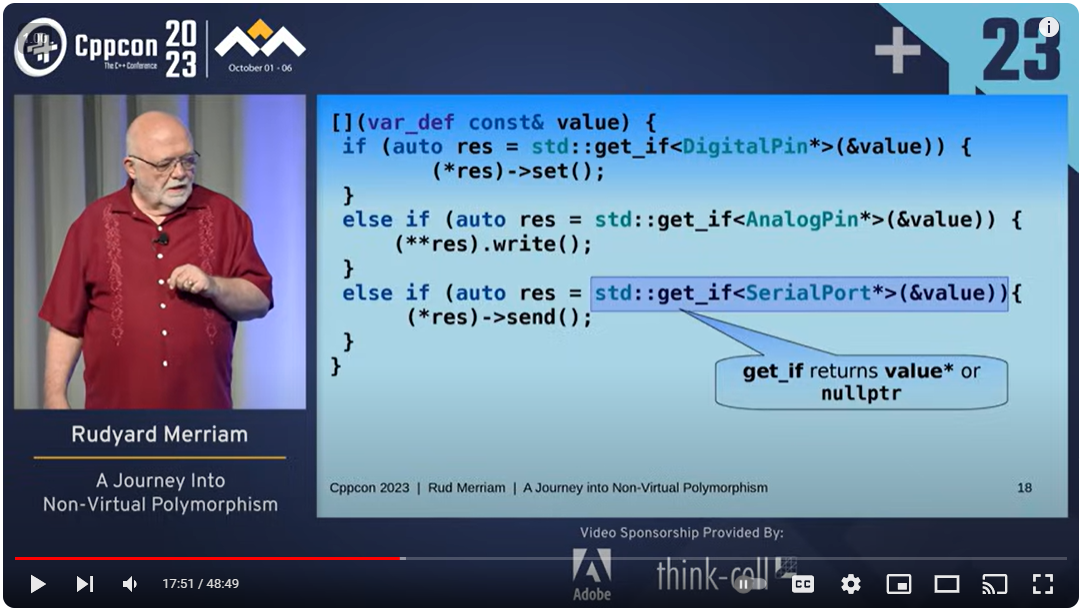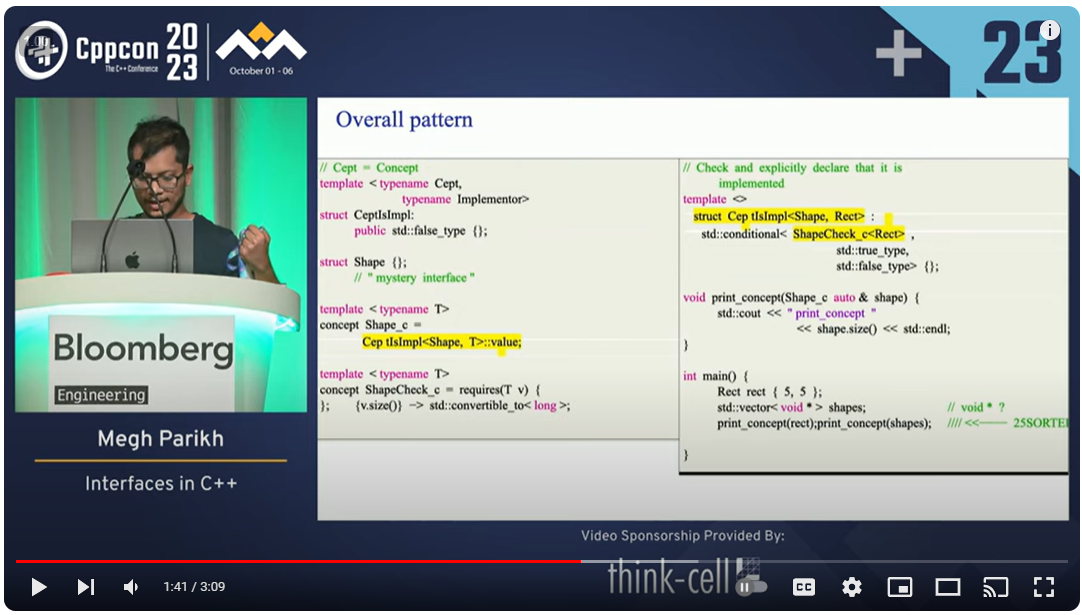The Performance Impact of C++'s `final` Keyword -- Benjamin Summerton
 If you're writing C++, there's a good reason (maybe...) as to why you are. And probably, that reason is performance. So often when reading about the language you'll find all sorts of "performance tips and tricks" or "do this instead because it's more efficient". Sometimes you get a good explanation as to why you should. But more often than not, you won't find any hard numbers to back up that claim. I recently found a peculiar one, the
If you're writing C++, there's a good reason (maybe...) as to why you are. And probably, that reason is performance. So often when reading about the language you'll find all sorts of "performance tips and tricks" or "do this instead because it's more efficient". Sometimes you get a good explanation as to why you should. But more often than not, you won't find any hard numbers to back up that claim. I recently found a peculiar one, the final keyword.
The Performance Impact of C++'s `final` Keyword
by Benjamin Summerton
From the article:
Multiple blog posts claim that it can improve performance(sorry for linking a Medium article). It almost seems like it's almost free, and for a very measly change. After reading you'll notice something interesting: no one posted any metrics. Zero. Nada. Zilch. It essentially is "just trust me bro." Claims of performance improvements aren't worth salt unless you have the numbers to back it up. You also need to be able to reproduce the results. I've been guilty of this in the past (see a PR for Godot I made).
Being a good little engineer with a high performance C++ pet project, I really wanted to validate this claim.

 Registration is now open for CppCon 2024! The conference starts on September 15 and will be held
Registration is now open for CppCon 2024! The conference starts on September 15 and will be held  In our previous discussion, we explored the intricacies of stateful but coalescing update notifications, shedding light on the pivotal role of the UI thread in implicit serialization. However, what if this luxury of implicit synchronization is absent? Delving into an alternate version of our solution, we confront the looming specter of race conditions and the necessity for meticulous thread management to ensure seamless operation. Join us as we navigate the complexities of thread synchronization and embark on a quest to refine our approach to asynchronous work handling.
In our previous discussion, we explored the intricacies of stateful but coalescing update notifications, shedding light on the pivotal role of the UI thread in implicit serialization. However, what if this luxury of implicit synchronization is absent? Delving into an alternate version of our solution, we confront the looming specter of race conditions and the necessity for meticulous thread management to ensure seamless operation. Join us as we navigate the complexities of thread synchronization and embark on a quest to refine our approach to asynchronous work handling.  Registration is now open for CppCon 2024! The conference starts on September 15 and will be held
Registration is now open for CppCon 2024! The conference starts on September 15 and will be held  Another meeting, another slew of potential changes to standard C++. In this recap, I’ll summarize the working draft’s most significant changes, spotlight my favorite proposal at the meeting, Member customization points for Senders and Receivers, and discuss a handful of notable developments.
Another meeting, another slew of potential changes to standard C++. In this recap, I’ll summarize the working draft’s most significant changes, spotlight my favorite proposal at the meeting, Member customization points for Senders and Receivers, and discuss a handful of notable developments. Registration is now open for CppCon 2024! The conference starts on September 15 and will be held
Registration is now open for CppCon 2024! The conference starts on September 15 and will be held